Keynote
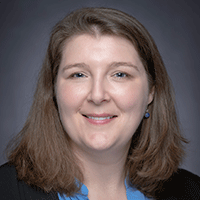
Dr. Erica Bickford
Director for the Office of Integrated Waste Management
US Department of Energy (DOE) Office of Nuclear Energy
Keynote Title: Consent-Based Approach to Siting Spent Fuel Management Facilities in the US
Abstract: The US Department of Energy has launched a consent-based siting effort to identify willing and informed communities to host one or more federal consolidated interim storage facilities. The presentation will provide an overview of the US's Consent-Based Siting Process, current activities focused on storage, and considerations for adapting the process for future disposal facility siting.
Biography: Dr. Erica Bickford is the Director for the Office of Integrated Waste Management within the US Department of Energy's (DOE) Office of Nuclear Energy. She is responsible for planning, policy, and implementation of Federal consolidated interim storage following a consent-based siting process and associated large-scale transportation of commercial spent nuclear fuel. For seven years she led the program's work to assess operational considerations for future large-scale spent nuclear fuel transport alongside intergovernmental engagement with Tribal, State, and Federal entities on DOE's transportation plans. Dr. Bickford has a PhD and MS from the University of Wisconsin-Madison; and a BS from the University of Maine.
Chernobyl Panel: Chernobyl Disaster: Modern Problems and Perspectives
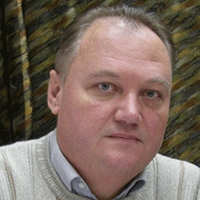
Lead Panelist
Viktor Dolin
Research Director of the State Institution "The Institute of Environmental Geochemistry of NAS of Ukraine", a member of National Committee for Radiation Protection of Ukraine
Biography: Environmental scientist, author, and co-author of almost 300 scientific publications. MS in Chemistry (1985), PhD in Geochemistry (1996), Associated Prof. in State Technogenic Safety (2000), Dr. of Geol. Sciences in Environmental Safety and Security (2004), Prof. in Environmental safety and Security (2013), Recipient of National Prize of Ukraine (2006). Head of Editorial Board of Scientific Journal Geochemistry of Technogenesis (Ukraine). Head of the Committee for Comprehensive Safety Analysis of Radiation Waste and Spent Nuclear Fuel Management of the National Committee for Radiation Protection of Ukraine. From 1986 research activity is conjugated with the environmental safety problems of Chornobyl Catastrophe.
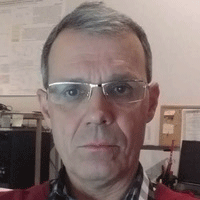
Panelist
Dmitri Bugay
Laboratory head, Senior researcher
Institute of Geological Sciences
Kyiv, Ukraine
Biography: Dr. Bugai is a senior resrach scientist with 35 years experience in the fields of radioecology, radiation safety, environmental modeling and risk assessment. During his work carreer he has participated in numerous projects in Ukraine and internationally on monitoring, assessment and remediation of radioactively contaminated sites, including Chernobyl, Fukushima, uranium production sites and industrially polluted sites, including the Pricneprovsky Chemical plant Site, Ukraine. He has a large international work experience including work with research institutions from the UK, France, Germany and Sweden. He has been working on various projects for the IAEA, including 6 months work as a consultant in the IAEA offices in Vienna in 2017.
Plenary: Challenges in Clearance
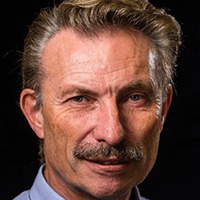
Dr. Joerg Feinhals
CEO at Association for Radiation Protection for Germany and Switzerland. Recently retired
Abstract: Clearance is the most used option to minimize the volume of radioactive waste. German NPPs are using clearance for approx. 97% of the waste generated during decommissioning.
After a historical reflection of the development of clearance regulations, the main future challenges in clearance are discussed. These are among others:
- Personal expertise: We do not have enough well trained experts in clearance for the next decades in Germany, as all German NNPs will be soon shut off and starting dismantling and not enough trained people are available.
- Dose concept for release of sites: Even in EC we have very different national requirements. While Germany is using also the de minimis dose concept for land areas, other countries like Sweden are using different dose concepts for release of sites (e.g. 100 µSv/a).
- Dependency between the national plan for disposal of radioactive waste and clearance regulations. Modifications of clearance regulations can affect the amount of waste very decisively. If the effectiveness for clearance is reduced by modifications of clearance regulations, the planned (or already realized) capacity of national disposal facility can be not enough.
The discussion of these issues underpins the importance of clearance within the next decades.
Plenary: Finland's Approach to Final Disposal of Spent Nuclear Fuel
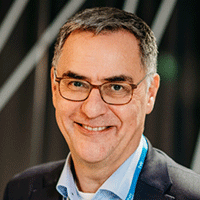
Pasi Tuohimaa
Communications Manager, Posiva Oy
Biography: A former political journalist at a national newspaper Helsingin Sanomat and in television Channel 4 news. Has worked over ten years in the nuclear business and Comms specialized especially in responsible nuclear comms. A member of the Finnish Energy Industrie's Nuclear committee. A formed Head of Comms at TVO.
Plenary
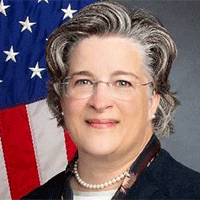
The Honorable Annie Caputo
Commissioner, U.S. Nuclear Regulatory Commission
Biography: The Honorable Annie Caputo was sworn in as a Commissioner of the U.S. Nuclear Regulatory Commission on Aug. 9, 2022, and is serving the remainder of a five-year term ending June 30, 2026. Commissioner Caputo previously served on the NRC Commission from 2018 to 2021.
Commissioner Caputo has over two decades of government and private-sector experience in nuclear energy and security policy. Caputo has a distinguished career as a nuclear engineer and, policy advisor, and has made significant contributions related to federal nuclear energy policy.
Prior to her most recent appointment as an NRC Commissioner, she consulted for the Department of Energy Idaho National Laboratory promoting international collaboration on advanced nuclear reactors. Prior to her work at INL, she served a short-term assignment with the United States Senate Armed Services Committee, where she assisted with the National Nuclear Security Administration's portfolio.
Prior to joining the NRC, she spent over 13 years as a staff member in the United States Congress advancing key policies and initiatives related to national security, science and technology, energy, and the environment. She served as senior policy advisor for Chairman John Barrasso and then-Chairman James Inhofe on the Senate Environment and Public Works Committee. Notably, she supported the Senators' work on nuclear energy policy and NRC oversight.
From 2005-2006 and 2012-2015, she worked for the House Committee on Energy & Commerce, overseeing a variety of nuclear energy issues. She supported then-Chairman Joe Barton and Fred Upton with oversight of DOE and NRC.
Prior to her positions on Capitol Hill, she worked for Exelon Corporation in a variety of positions of increasing responsibility in both nuclear generation and governmental affairs., notably serving as the Executive Assistant to the Senior Vice President of Fuel Procurement.
She earned a bachelor's degree in Nuclear Engineering from the University of Wisconsin-Madison, with an emphasis in communications.
In addition to her many accomplishments, she brings ingenuity to her hobbies as an avid quilter and crafter. She enjoys sharing her talents and creating one-of-a-kind pieces for others.
Transition from a Department of Energy (OE) closure site to the nation’s lead laboratory for nuclear energy research, development, demonstration, and deployment - INL's success story.
Through this panel discussion, our panelists will discuss History of Idaho National Laboratory, its Vision and Mission and capabilities, Advanced Reactor Programs, and Integrated Fuel Cycle Test Bed Initiative.
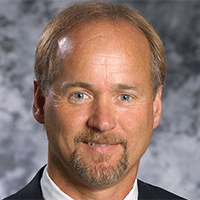
Moderator
Robert Miklos, Retired INL Employee
Previously, Director of Production Facilities: Fuel Recycling, Nuclear Fuels Management, Waste Management
Biography: Robert Miklos retired from INL after 23 years. Most recently was the director of Production Facilities and Treatment Storage and Disposal Facilities (TSDFs) at Idaho National Laboratory's Materials and Fuels Complex (MFC). He has more than 35 years of experience in disciplined operations of nuclear and non-nuclear facilities, spent fuel and waste management, start-up and testing, integrated safety management and project management of large-scale and complex projects. He has been responsible for safe and efficient operations, maintenance and project activities within the Fuel Conditioning Facility (FCF) nuclear facility, (TSDF’s), BEA Idaho Nuclear Technology and Engineering Center (INTEC)facilities, and Remote Handled Low Level Waste Disposal Facility (RHLLW). Prior to joining the INL community, he spent 18 years in large-scale commercial construction, capital asset projects and DOD construction, overhaul and refueling, defueling, and decommissioning experience when employed by Newport News Shipbuilding and its subsidiary company, Newport News Reactor Services. He is a Director on the Energy Facilities Contractors Group (EFCOG) Board of Directors and previous chair of the (EFCOG) Project Delivery Working Group (PDWG) and holds undergraduate degrees in engineering from Pennsylvania State University and Old Dominion University. He is a PMI-certified Project Management Professional (PMP) and a Stanford University Certified Project Manager (SCPM).
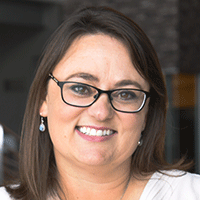
Panelist
Sadie Butler
Idaho National Laboratory
Biography: Sadie Butler, JD, PMP is the Deputy Director of Projects at the Materials and Fuels Complex at the Idaho National Laboratory. She has 15+ years of diverse experience in operations and project/program management and has been a key contributor in implementing novel approaches for addressing legacy environmental liabilities while establishing back-end waste and material management approaches for the Advanced Reactor Program including development of treatment options for difficult to treat waste streams, partnering with industry experts for the development/deployment of technology to address a variety of challenging waste stream treatment and disposal issues, and elimination of decades old inventories. Sadie holds a bachelor's degree in chemistry and mathematics Education and a Juris Doctorate and is a registered Project Management Professional.
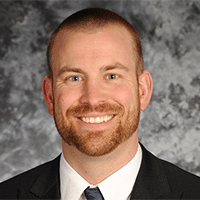
Panelist
Josh Jarrell
Idaho National Laboratory
Biography: Dr. Josh Jarrell has been working in nuclear energy research and development since earning his PhD in Nuclear Engineering from Texas A&M in 2010. He currently works at Idaho National Laboratory as a senior technical advisor for the Department of Energy's Advanced Nuclear Fuel Availability Program. Over the past five years, he's also managed a Pyrochemistry and Molten Salt Systems Department as well as a Used Fuel Management department at Idaho National Laboratory (INL). Before joining Idaho National Laboratory, he worked seven years at Oak Ridge National Laboratory at a R&D staff member with a focus on modeling and simulation of nuclear reactors as well as spent fuel management.

Panelist
Brett Campbell
Veolia Nuclear Solutions
Biography: Mr. Brett Campbell serves as Vice President for Technology Deployment at Veolia Nuclear Solutions - Federal Services(VNSFS) in the U.S. He is a chemical engineer and a globally recognized expert on vitrification and waste treatment technologies. VNSFS is the U.S. federal and nuclear contracting arm of the Veolia Group, with robust experience in managing and supporting large complex projects for the federal government and its prime contractors in radiological, nuclear and other hazardous remediation missions. VNSFS also supports global Veolia as it aims to become the benchmark company for ecological transformation. Through its three complementary activities of water, waste and energy, Veolia helps to develop access to resources, to preserve available resources and to renew them.
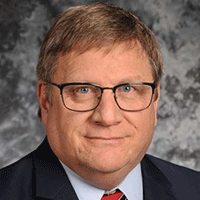
Panelist
Lance L. Lacroix
Manager - Idaho Operations Office
Office of Nuclear Energy
Biography: Lance Lacroix is a member of the Senior Executive Service and currently the Manager of the Idaho Operations Office. He provides executive-level leadership for oversight of the nation’s leading nuclear energy research, development, and demonstration laboratory at the Idaho National Laboratory site. He provides oversight of over 5,500 federal and contractor staff of a multi-program laboratory focused on innovative nuclear energy solutions, clean energy options, and securing world class critical infrastructure and carry out a safe environmental cleanup program.
Mr. Lacroix previously served as the Deputy Manager, Nuclear Energy Facilities, Operations & Security/Chief Operations Officer for DOE-ID. The INL is the home of the World’s most powerful test reactor, the Advanced Test Reactor, 25 hazard category 2 & 3 nuclear facilities as well as several dozen radiological facilities.
Mr. Lacroix has over 30 years of nuclear experience, including over 15 years of submarine service as a commissioned naval officer and 3 years as an enlisted petty officer; six years as the manufacturing supervisor at the SMC project, a classified program involved in M1A Main Battle Tank armor production; four years as a DOE Facility Representative at MFC where he provided day-to-day oversight of contractor operations at nuclear and non-nuclear MFC facilities; and over seven years as the Director of Idaho Facilities Management. Mr. Lacroix most recently participated as a DOE negotiating team member that successfully came to agreement with the state of Idaho Governor and Attorney General concerning new compliance commitments and dates associated with the 1995 Settlement Agreement.
The panel will discuss the topic of Facility Decontamination and Dismantling with three contributions from Ansaldo Nucleare, European Commission – Joint Research Centre (JRC) and SCK CEN: Belgian Nuclear Research Centre
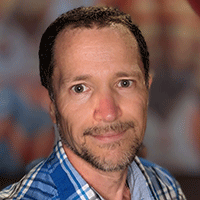
Panelist
Antonio Bulgheroni
Scientific officer European Commission
Joint Research Centre
Biography: Antonio Bulgheroni is a Project Leader in the European Commission – Joint Research Centre (JRC), in the Waste and Irradiated Compounds Unit of the Nuclear Safety and Security Directorate, located in Karlsruhe, Germany. His main focal points are the microstructural characterisation of spent fuel and waste forms using microscopy and micro-sampling techniques, and the development and nuclearization of innovative methods for the analysis of “hard-to-measure” radionuclides. Currently, he is contributing to the adaptation of a laser-based spectroscopic technique for the precise determination of 14C concentration in decommissioning waste compounds. He holds a PhD in Physics (2005, Università degli Studi di Milano). He was post-graduate visiting scientist at CERN (2005-2009) for the development of novel and innovative radiation detectors to be used in research environments (mainly for high energy physics experiments) and in applied fields such as medical imaging. In 2009, he joined the JRC at the Ispra site, where he worked as a cyclotron engineer; he later became responsible for the design and implementation of a dedicated software toolbox for controlling and managing all radiological and radioprotection instruments monitoring the whole site. In 2013, he joined the JRC Karlsruhe Unit.
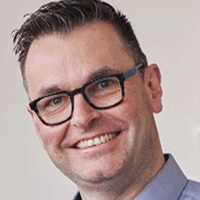
Panelist
Christophe Bruggeman
Deputy Director-General
SCK CEN
Presentation Title: Title: Lessons Learned and Recent Advances in Decommissioning Technologies at SCK CEN
Biography: Christophe Bruggeman has a PhD in Bio-Engineering Science and is currently the deputy director-general of SCK CEN, and is also acting director of the Institute for Sustainable Waste management & Decommissioning. From 2018 until November 2022 he was the head of the Expert Group Waste & Disposal as well as the Deputy Director of the Environment, Health and Safety Institute. In this former capacity, he was responsible for the administrative, financial and scientific coordination of the RD&D related to radioactive waste management in both domestic and international projects. He is a guest lecturer at the Université de Liège on the back-end of the nuclear fuel cycle. He also acts as the current chair of EURADScience, the European network of research organisations on radioactive waste management.
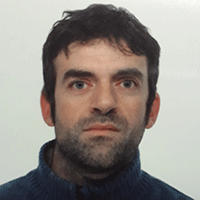
Panelist
Thomas Coltella
Senior Engineer
ANN/OPE/M&C ENG/MC&D
Biography: Thomas Coltella is a Senior Engineer in Ansaldo Nucleare S.p.A. in the Mechanical Components Design Unit, located in Genova, Italy. His main focal points are the design and qualification of containers and high integrity containers for low level and intermediate level radioactive waste, according to Standard IAEA and National Norms requirements. Currently is involved in DTT (Divertor Tokamak Test) project in Frascati – Italy as Engineering Work Package owner, concerning detail design of the VV components and the mechanical devices for the assembly, and the study of assembly strategy of VV and other macro-system on site. Also involved in the design of components for a SMR scaled testing facility by Rolls Royce. Since 2018 he is member of GL05 workgroup of the UNI SC 04 subcommittee for the issue of Italian Standards which define the requirements for radioactive waste containers. In the recent past he worked as method technician, 3D senior designer and mechanical leader in several contracts for ITER (HCCB, TAC-2 project). He holds a Master's degree in Mechanical Engineering (2002, Università degli Studi di Genova). Since 2002 to 2011, he joined the Ansaldo Fuel Cells S.p.A. company to design stack components within Molten Carbonate Fuel Cells (MCFC) technology. Since 2011, he joined the Ansaldo Nucleare S.p.A. company.
Successes on the path to Finland's readiness to operate the world's first deep geological repository.
Moderator: Maria Oksa - Senior Scientist, VTT
Panelists:
Timo Seppälä - Senior Adviser, Mitta Engineering Oy
Pasi Tuohimaa - Communications Manager, Posiva Oy
Antti Ketolainen - Senior Manager, Decommissioning and Waste, Nuclear Services - Fortum
Erika Holt - Customer Account Lead, Project Manager, VTT